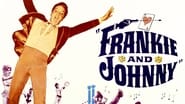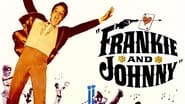bigverybadtom
Which is arguably the case with most Elvis Presley movies, where he plays himself, sings a few songs, and the movie depends on the rest of the cast. This is a costumer set in the indefinite past, where everyone is first aboard a riverboat and then in New Orleans.Elvis plays a performer in a riverboat musical entertainment show, with a blond girlfriend who acts with him. Trouble is, he is a compulsive gambler in debt to a number of people on the riverboat, including his thuggish boss. Being a superstitious sort, he consults with a gypsy stationed offshore, who tells him he needs a redhead woman companion to start winning at gambling. He finds one...namely the girlfriend of his boss, and the inevitable complications come from that.This is basically like any other such musical, meant to be amusing without pretense of deep meaning. And in that, the movie works.
mark.waltz
Seen 50 years after its premiere, this 1966 movie musical seems like something that Mickey and Judy would have done in 1943, that Doris Day and Gordan MacRae would have done in 1950, and that Gordon would have turned down in 1956 for a reunion with Shirley Jones. It's a period song and dance musical set aboard a show boat seems instantly dated, and Elvis seems way ahead of it in time period. It's all about the issues between singing gambler Elvis, his long suffering girlfriend Donna Douglas and the threats of a gypsy prediction. I wish that they had predicted that co-star Harry Morgan wouldn't sing, and proved to be right. No such luck. If I look at this as one of the many non MGM musicals of the early 1950's, I could have tolerated the simplistic atmosphere that was out of step in 1966. Even the traditional musical films of that time had modern elements; the ones here had been in use in the mid to late 1930's. The only difference is that when Elvis sings (and shows off his lacquered hair), you're transferred out of the era of the setting of the story and right back into a dress- up party in 1966. With Audrey Christie as Morgan's nagging wife (making them a copycat version of "Show Boat's" Captain Andy and Party), Nancy Kovack as Nellie Bly (the threatening redhead) and Sue Ann Langdon as ditsy Mitzi, this takes the legend of Frankie and Johnny to cheeky level, with Kovack attractive, but seemingly a bit long in the tooth to be the femme fatale. Robert Strauss adds another cad to his list of villains. As Frankie, Donna Douglas grows some claws every time Kovack is around, almost making you forget that she's the ingenue on a popular sitcom. For me, the only way to not dismiss this was to look past the silliness and enjoy the production numbers, the only one other than "Viva Las Vegas" to feature them. The title song is a little nasal for my taste, but a few takes on traditional American music made a huge difference.
James Hitchcock
"Frankie and Johnny" is one in the long line of musicals which Elvis Presley churned out in the sixties. It has no connection with the Al Pacino/Michelle Pfeiffer film of the same name from 1991, but is instead fairly loosely based upon the well-known American folk-song. It is set some time in the late nineteenth century, probably around 1880 or 1890, although the exact date is never stated. Johnny and his girlfriend Frankie are performers on a Mississippi riverboat; Johnny is also a compulsive gambler, and as the boat has a casino on board he has plenty of opportunities to gamble. The film deals with the complications caused in their relationship by Johnny's gambling habit and Frankie's jealousy of his friendship with an attractive redhead named Nellie Bly. Johnny's interest in Nellie arises from the fact that a gypsy fortune-teller has informed him that a red-haired woman will bring him luck, but the jealous Frankie suspects that their relationship goes much deeper.One of the problems of casting a rock star in a Victorian period drama is that rock didn't actually exist in the Victorian era. The makers of this film are not really all that concerned with period accuracy- some of the music we hear sounds suspiciously like jazz, which didn't really exist in the 1880s, and even the song "Frankie and Johnny" itself was not published in its modern form until the 1920s. Somebody, however, obviously realised that rock-and-roll would be anachronistic, so the star gets to sing a series of bland, totally forgettable easy-listening numbers.Elvis was always fairly laid-back as an actor, but in this film he doesn't seem to make much effort as a singer either, being content just to stroll his way through the film. The rest of the cast are no better; in his film career Elvis played opposite some pretty obscure leading ladies, but Donna Douglas is one of the least memorable of the bunch. I was not surprised to discover that this was the last film she made in a brief cinema career. About the complicated and often far-fetched plot, the less said the better. Most Elvis Presley films these days are unlikely to appeal to anyone other than his many devoted admirers, but I suspect that even they will find themselves feeling a bit short-changed by this one. 4/10
Michael O'Keefe
Elvis plays Johnny, a riverboat entertainer that has a big gambling problem. Donna Douglas, better known as Elly Mae Clampett, is Johnny's girl, Frankie. A fortune teller tells Johnny how he can change his luck. Enter a new lady luck played by Nancy Kovack and the cat fight begins. Costumes range from classy to gaudy. A dozen songs make up the soundtrack featuring "Hard Luck" and "Please Don't Stop Loving Me". This film was directed by Fred de Cordova, director of Johnny Carson's "Tonight Show". Also in the cast are Sue Ane Langdon, Harry Morgan and Anthony Eisley. A fun movie to watch.




